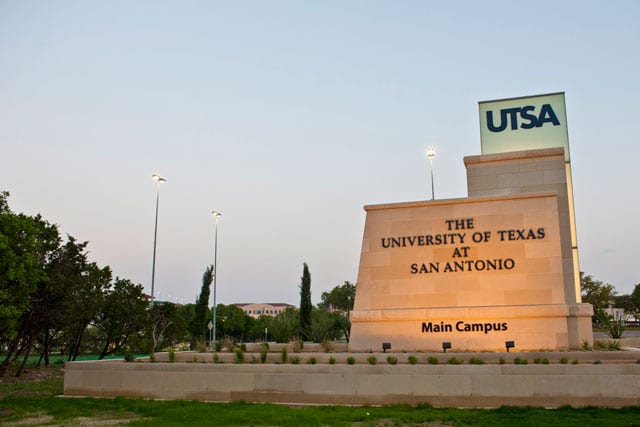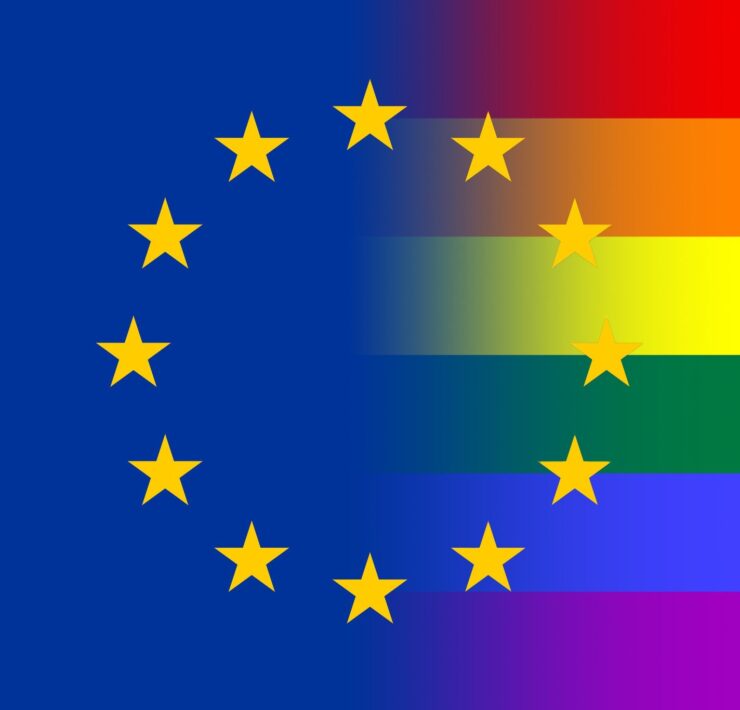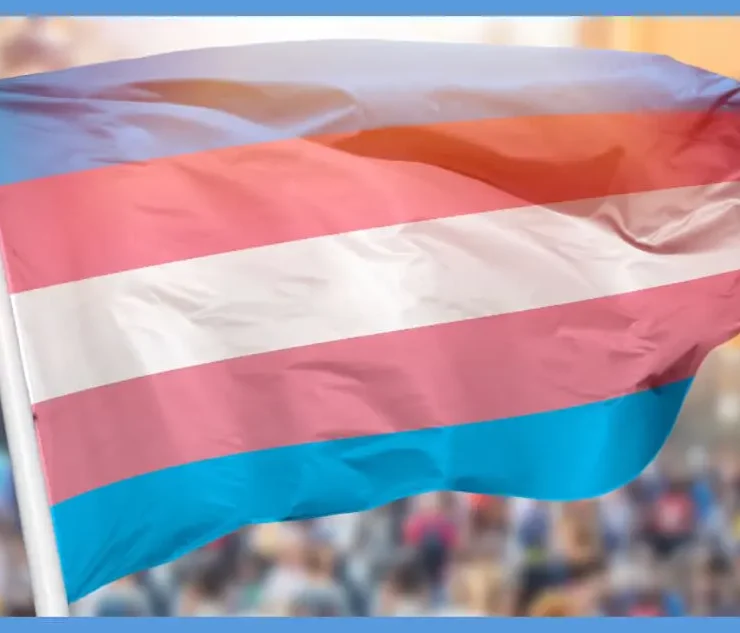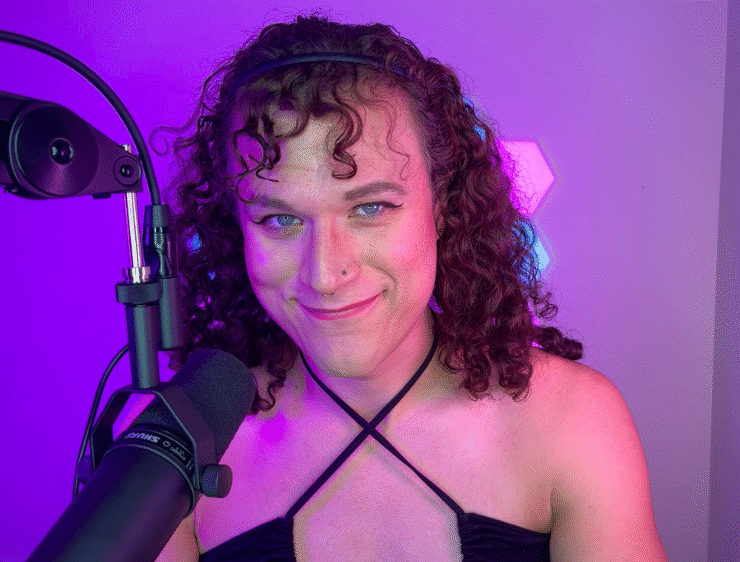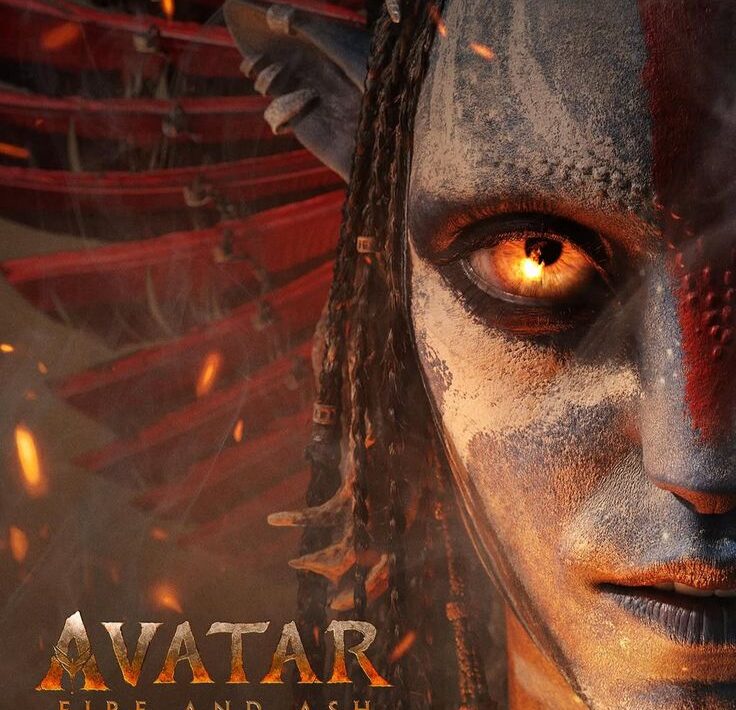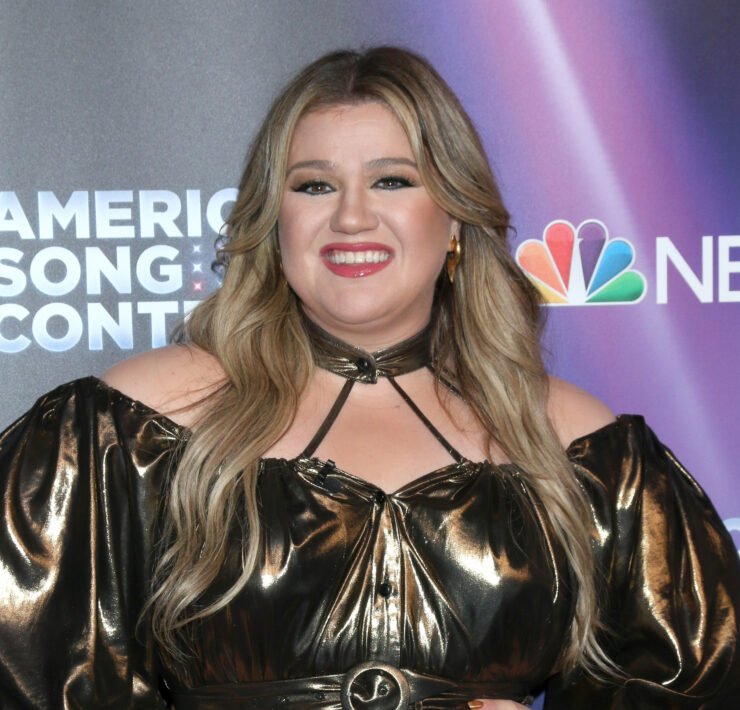‘Queer Eye’s’ Original Culture Vulture Jai Rodriguez

Denny Patterson is a St. Louis-based entertainment and lifestyle journalist…
From playing Angel in Broadway’s Rent to his memorable role as the original Fab Five Culture Vulture in the Emmy Award-winning show Queer Eye for the Straight Guy, Jai Rodriguez has been bringing us charm, talent, and sexiness for over two decades.
Because Rodriguez started in the industry at a young age, he quickly learned how hard it is to stand out and still have a voice. Despite this, he has remained at the forefront of LGBTQ representation and many opportunities he has been presented with are due to his hard work and dedication to entertainment. Rodriguez also has a heart for advocacy, working with organizations like The Trevor Projects and Project Angel Food. He will always help uplift those who many not always feel heard.
His passion for entertainment and advocacy went into one of his recent projects, portraying José Sarria in HBO Max’s LGBTQ historical docuseries, Equal. Sarria was the first openly gay candidate to run for public office in the United States in 1961. He also helped form the country’s first gay business association and performed as a drag queen known as The Widow Norton.
Rodriguez took some time to chat more with OFM about his portrayal of Sarria, if he would ever get involved with politics, and how Queer Eye for the Straight Guy impacted his life both positively and negatively.
Hi, Jai! What a pleasure it is to chat with you. One of your most recent projects was appearing in HBO’s docuseries, Equal. How did you get involved with this project?
It’s a funny story. The weekend I was doing Family Feud, I auditioned for Equal on a Thursday, and all the Queer Eye boys flew into town because we were going to do Family Feud on that Friday. Like an idiot, I wore my iWatch into the audition, and it kept blowing up. It was the creator of Queer Eye checking in with the boys, which he never does. I think the last time I heard from him was when the announcement of the new Queer Eye happened, and prior to that, probably when we wrapped up the show. So, I was surprised that he wanted to know what everyone was in town for.
I said, I am sorry for being late, I was auditioning for a new series on HBO Max. He was like, which one? I said, it’s called Equal, and he’s like, that’s my show. Like what? Great, then can we just cut through the middleman and just offer me a role? We had a good hearty laugh and he said would connect me with his business partner, another producer of Queer Eye, and they would see if they had anything for me.
Two weeks passed, and the offer came in. Because HBO Max is still brand new, and we probably could have made more money working at Starbucks for a week, but it was a small labor of love to be part of something that will forever document unsung heroes of the 1960s who did not get their fair share in history.
You play José Sarria. Can you tell us a bit about who he was?
José was an out, loud, and proud political drag queen in San Francisco in the 50s and 60s. He just passed a couple years ago. What was different at that time was, they had the title drag queen, but in San Francisco, honey, drag queen was not nearly enough. They wanted to be empresses. José decided to stick out by giving himself a unique title. There was an eccentric man in San Francisco in the late 1800s who had printed his own money, and he was just kind of a kook. His name was Edward Norton. So, José took on the title of The Widow Norton, and was known both equally as The Widow Norton and José Sarria.
José started the largest philanthropic and charitable fundraising organizations called the Imperial Court. There are thousands of chapters all over, but José began the first one. If you listen on YouTube, there is a bunch of audio and visual content of José Sarria where, in The Black Cat, he would be reading people who would kind of try to live their life very stealth. Not out and about, but would still want the privilege of coming to safe and gay spaces where it was illegal to dress as a woman. You had to always have on two articles of men’s clothing, or the police could raid the bar. So, people would wear pants under a dress, and there were these subtle nuances.
What José did beautifully was preach about what the community was fighting for and the rights that did not exist back then and allow these people who are coming for entertainment to receive messaging. In a way, he was inserting vegetables into a meal that was decadent. So, it was nutritious and educational, but they are also getting entertained.
He would close every night with this anthem to the tune of “God Save the Queen,” but rewrote the melody to “God Save Us Nelly Queens.” I sing it in Equal, and it was this unifying charge to rally the community together in a time of desperation where their very lives were at stake. Being out and proud was dangerous, you could easily be fired from your workplace without justification other than you were homosexual. It was the beginning of something ironic that I honestly had very little knowledge of the specificity.
The fact that José was the first out, gay politician, granted he did not win, the first winner was Harvey Milk, also from San Francisco, but the impact of learning that when things were incredibly unsafe, our queer ancestors made the bold and brave decision to not just only put themselves in situations that were probably more dangerous, but they tried to unite the community and stand up for civil rights.
What kind of legacy do you believe José left?
I think the idea of being authentic and being out is a level of importance. It is almost in line with Harvey Milk’s message, which was, “come out, come out, come out.” Quite simply, it is about, if you are loud and proud about who you are, it is harder for people to hate people they know and to vote against the interest of those they love. José was very much about being authentic and honest, and I think the legacy there is really about shedding light on who we are. To know that we are worthy and to fight for equality, so we are all protected the same.
If you had the chance to meet him, what would you say?
Thank you. I would say a profound thank you. When José passed, and even when he was still with us, many people wanted his story told because it is an empowering story. If you don’t know where you came from, you may feel like you are the only one and you don’t have guidance as to where you are going. You need to know the full context of the scope of how long this fight for equality has lasted, and who came before you. It is empowering as a community.
It is sad that we only learn certain stories in school. This story would have been very empowering to me because as a queer, Latin person growing up in New York, I felt all alone. I did not have references to these people when I was younger, and they would have really empowered my story. It would have inspired me and made me feel like I was a part of something bigger than just myself and the projects I have been fortunate enough to be a part of.
Related Article: Elizabeth Faith Ludlow as Stormé DeLarverie in ‘Equal’
Some people believe that artists and entertainers should not get involved with politics because it is not their area. What are your thoughts?
Well, I am a taxpaying citizen. Nothing separates me from being a tax paying citizen and how policy directly impacts me and my community. I believe it is irresponsible to not speak out when you see injustice, no matter what your position is. If we want to talk about exposure to life on a big scale, I know I have had a nonlinear life. I know that my life has put me in spaces that were not in my bubble. They were outside of my bubble; I don’t get to choose the work I take. I am not in that position. I live very humbly in a modest, two-bedroom apartment with a roommate. I am not some rich celebrity who has multiple homes or a home in the hills. I don’t even own.
So, I am a taxpaying citizen. When policies are made and elected officials make decisions that impact my daily life, I’ll be damned if I am going to be silenced by some keyboard troll who decides that because I have had different levels of visibility, that I should stay silent. Absolutely not. If you have a platform, it is your job and duty as an American, as a citizen, to use that for good. When it comes to being outspoken, you better make sure that when you open your mouth, you are educated on the topics that you are speaking of. When I speak, I make sure to cross my T’s and dot my I’s. I will often say, I need to research that further if I don’t know.
I think that one of the things people forget is that there is a scrutiny on people in any level of media or entertainment that many of us are mindful of our words and actions. Not all, but many. I believe when people look up to you, and you represent any marginalized community that is under attack, it is your job to speak up. I know that Queer Eye depicted us as gay superheroes, and I do not take that lightly. I think when you have attacks against LGBTQ people, against people of color, if there are any justices you or people you know are experiencing, it is your job and your duty to make them aware. Would you ever run for political office?
Would you ever run for political office?
[Laughs] Many people suggest because of the way I speak, that I should. I don’t know. I guess since Melania Trump had some nudes leaked and Kim Kardashian was on the cover of Vogue and had a sex tape, I guess it is all good. Not to say that I have those out there, but I know that we live in a world where anything is possible. I think if we get to this station in life where I feel a little bit more grounded in my own life where I could shelf my career for a minute and get into public office, I absolutely would. I think that is very important to start locally, and I encourage all LGBTQ people who are interested, if you feel a calling, go for it.
History shows us that only straight ,white men can be in office, and that is just not true. I would like to see elected officials who look like the full tapestry of what our country looks like, and that includes gender expression and sexual orientation. I want more diversity because I would like to be governed by people who have had experiences like mine. I do not want people in office who are talking about something they have never experienced or been touched by.
The people who I really feel like have my heart and tug at me are people who have experienced tough situations. Whether it’s loss or have someone in their life that struggled with addiction, they come from a place of knowledge because they have lived it. There is a level of compassion that comes with that, and I appreciate it.
Equal has an all-star, LGBTQ cast portraying these significant, LGBTQ individuals. Do you believe only LGBTQ people should be LGBTQ roles?
This is a tricky topic. I will start with sharing why some people believe this. It is very difficult to be an out, gay actor and get cast in straight roles. Not impossible, difficult. Why? Because people in power sometimes have bias against gay people. Have a straight person play someone LGBTQ, and if they are personally not, what a good actor! Oh my God, give them all the awards. We can’t get in the room; we can’t get opportunities; our stories are not being told by us, and they are put on media and told incorrectly. Misinformation is spread.
If you look at the history and depiction of trans people, it was to be laughed at or something disgusting. If a trans woman was on a show, and they thought previously she was a cisgender woman, there’s the ill factor. There are plenty of LGBTQ actors out there; we are just getting to a place where transgender people are being called in. I know that I have played trans people myself, I will not currently audition for trans roles. Why? Because it is taking roles out of the hands of people who are qualified, who can best tell the story, who are doing it authentically, and there is no need for me to play it.
When I auditioned for Harry’s Law, I played a trans woman. I knew specifically that they did not want someone who is transgender, a drag queen, or a gender non-conforming person because it said so on the breakdown. I thought, in that moment, I have an obligation to tell the story to the best of my ability. Having been pseudo raised by trans women in my early 20s, some of my biggest mentors were trans women. Telling their story accurately was of utmost importance to me.
When I got on set, I found that David E. Kelley had the best intentions to tell the story, but there were issues that hair thought I was a drag queen and styled the hair that way. The makeup department understood that I was a trans woman, and they knew the fullness of what that meant, as did the wardrobe department, but there was ultimately a disconnect in what that really meant, what that looked like, and what the character would be doing.
While not all trans people have the same journey, I know that there is a lack of education in the writer’s room, the producer standpoint, and the network level to what the experience is like. So, I would say to that question, give people the opportunity. We have more than enough LGBTQ people. Historically, straight people have played LGBTQ people; we get that, and it is very rare that we have gotten to tell our own stories in the past. Now, I think there is a push. There are so many of us, and if you are not going to see us equally for straight roles, then at least allow us to play those roles because there are hundreds of thousands, if not millions, of actors who are able to tell these stories more accurately and more authentically.
Related Article: Queering up your Design with Bobby Berk
Millions of people still know you as original Culture Vulture from Queer Eye for the Straight Guy. How did you feel when you found out there was going to be a reboot?
I thought I was going to be on it [laughs]. When I got the call from the producers saying they were brining Queer Eye back, before they could take a breath, my stupid Puerto Rican ass jumped right in. Like, oh my God, this is so exciting because now that I am in my 30s, I have so much more to offer.
They were like, with a brand-new, dynamic cast. I must admit, I was absolutely butt-hurt at first. I felt like this was a fraternity that I helped form, but I was being kicked out. Now, with social media, they would reap the benefits of our previous work. As trailblazers, Billy Porter says this best, and I am quoting him loosely. He said, “Often, when you blaze a trail, you don’t generally get to reap the benefits yourself. The people who come behind you do.”
I will say with the resurgence of the brand that I love, and I am so happy they are doing it, it has opened opportunities for me now in a way that Queer Eye in the 2000s did not. I have 23 years in the business of working professionally non-stop. I think it is a different beast. So, when I first found out, I was at first kind of disappointed that we were not being used because I miss our magic, but when I saw the show, I was also like, oh God, I don’t think I would want to do that again.
However, I would want to work with my guys any day again on anything that was uplifting, profound, and groundbreaking. I think there is still a lot of ground to be broken that is outside of what Queer Eye does. I am hopeful that we can get together at some point again and do something consistent. Queer Eye for the Straight Guy broke down barriers for onscreen representation for LGBTQ people. Did you ever imagine the show would be such a big success?
Queer Eye for the Straight Guy broke down barriers for onscreen representation for LGBTQ people. Did you ever imagine the show would be such a big success?
I feel like we did break down barriers for gay people, and I feel like this was the first time America saw something like this. The show was great for gay people, but I do feel like we could have been more inclusive with the other letters in our acronym. All of us, we really thought we were going to go back to our normal jobs. We had no understanding of the magnitude of the show, certainly not me.
How did the show personally impact your life?
I felt pretty oppressed because while my guys were getting book deals, separate endorsement deals that were sometimes into the millions, I was repeatedly told by some people who were helping the other guys that I was unmarketable, too gay, too Latin, and I would not have a way to be marketable because of who I was. Now, in this present culture, we are being embraced, celebrated, and enjoyed. You would be hard-pressed to dig into the Rolodex of those out, LGBTQ people of color in the early 2000s who got big endorsement deals, who got their books sold, and came in having a story like mine.
All the things that happened to me as a child and my experience, I just took that and made it into a Broadway-style cabaret show in which Rosie Perez played my mother. I reenacted when I got kicked out of my home, and it was sort of like Moulin Rouge. The music was familiar, and the story was new. I put that into my cabaret show.
Certainly not as lucrative as what came for my other guys, but I did feel it was important. I did also know as it went along, the bias that went along with it. For you to succeed, you either had to be super campy, be laughed at, and be part of the joke, or you had to be somewhat straight-presenting. We don’t want to ruffle any feathers, so don’t be yourself. Be closer to what they can relate to, which ultimately suppresses who you really are.
As much as the show did for others, the thing I am glad for is, it let me be visible and unapologetic. I have to tell you, when I speak, yes, sometimes glitter comes out of my mouth. Sometimes, I even wear glitter, and I’m 41! I do not apologize anymore for the fact that I often live in this space between genders. I do not mind wearing female garments or going out in a wig. I do not have issues now with being called feminine, or whatever. I think I present masculine in some spaces, and in other spaces, people may think I present feminine. I don’t make apologies for that.
I think I did when I was on Queer Eye. I struggled to align myself with what people wanted me to be, and I ended up putting myself in a box. I watched people, friends of mine, like Ross Matthews, who were unapologetic from the beginning and have massive success. Those of us who, in the beginning stages, tried to code to make people comfortable oftentimes did not get the same opportunities.
As a scripted actor, agents were telling me to butch it up. I have been fortunate enough to play straight characters to kind of rub it in their face. Like, ha ha. I told you so. When I came out of Queer Eye and met with the producers, and I honestly do have respect for all the work that they do and what they continue to do in terms of representation, but as we were moving forward with all this stuff, it was tricky for me to find my way. I was never told ever by anyone in their camp or the network to butch it up. I do know that being on Queer Eye did not give me a leg up professionally.
I had to take Queer Eye off my resume when I moved here because the stigma around reality television, no matter how kind or groundbreaking it was, it was so dense that I could not be seen as an actor. It was not until I auditioned for Nip/Tuck that I booked my first major guest star on a massive, scripted show. Things then kind of snowballed from there and I am in a space in my life where, thankfully, I am going to auditions and auditioning for work, regardless of who the character chooses to love.
Follow Rodriguez on Facebook, Twitter, and Instagram, or visit his official website to stay up-to-date on the latest news, projects, and behind the scene moments of his life.
Photos Courtesy of Storm Santos
What's Your Reaction?
Denny Patterson is a St. Louis-based entertainment and lifestyle journalist who serves as OFM's Celebrity Correspondent. Outside of writing, some of his interests include traveling, binge watching TV shows and movies, reading (books and people!), and spending time with his husband and pets. Denny is also the Senior Lifestyle Writer for South Florida's OutClique Magazine and a contributing writer for Instinct Magazine. Connect with him on Instagram: @dennyp777.



